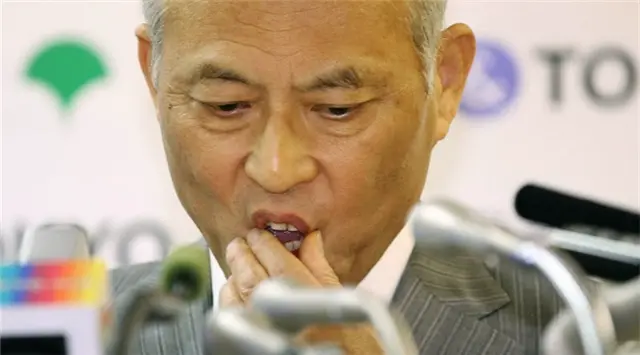The resignation Wednesday of Tokyo Gov. Yoichi Masuzoe for his misappropriation of political funds has once again brought to the fore the inherent "wheeler-dealer" type of dealings that have plagued Japanese politics for decades.
Masuzoe, 67, was elected to be the governor of Tokyo two years ago following his predecessor being ousted for a 53 million yen (500,000 U.S. dollars) funding scandal, and at that time pledged to the public that he would do his utmost to restore their faith in the capital's politics and in doing so, earned himself more than 2 million votes to secure his position in landslide victory.
But Masuzoe, in a time of austerity as the nation's economy has continued to stagnate under the flawed policies of Prime Minister Shinzo Abe's "Abenomics" blend of economic revival rhetoric, has duped the public with his double-dealings and raised questions about the ruling Liberal Democratic Party-led coalition's decision to back him in the gubernatorial election in the first place.
Suffice to say, Masuzoe, who is well-schooled in international politics and no stranger to parliament as he served as the nation' s health minister for years, has offered little by way of exegesis and even refused to elaborate on his misuse of political funds under questioning from the Tokyo assembly, with his resignation not just an admission of culpability but the certitude that his name will now be added to an ever-growing list of politicians and high-profile government officials that have been caught with their hands in the till.
Political analysts have been quick to point to a culture of back room dealings, cash for favors and extravagant private expenses being written off at the tax payer's expense that have and continue to be synonymous with politics in Japan.
Since Abe retook office in December 2012, no less than four of his own ministers have been forced out of their positions for similar scandals, with Masuzoe's misconduct doing little to restore faith in a system that has been consistently plagued by financial indiscretions, carried out by officials entrusted to serve the public, but instead choosing to serve themselves at the expense of hardworking taxpayers.
Former Economy and Fiscal Policy Minister Akira Amari was also forced to step down in January for his involvement in a bribery scandal involving him providing special political favors to a construction company in return for free entertainment, gifts and millions of yen in cash.
Amari had brokered Japan's involvement in the Trans-Pacific Partnership (TPP) in his concurrent role as Economic Revitalization Minister in charge of the Trans-Pacific Partnership, with his resignation also leaving a nasty taste in the mouth of the taxpayers and the electorate and also contributing to diminishing faith in the government to live up to its own pledge that Japan's "money politics" would remain a thing of the past and the political funds control law be upheld and followed to the letter.
As political observers have highlighted the amounts of money or the equivalent in illicit receipt of gifts, services and entertainment are far from paltry. In Masuzoe's case he used 450, 000 yen (4,239 U.S. dollars) from his now defunct political funds body to pay for accommodation and dining expenses alone for a trip he made with his family to a luxury hotel in the New Year holiday season.
Added to that has also been accused of taking multiple trips overseas since he became governor in 2014, to the tune of 200 million yen (1.88 million U.S. dollars), and has faced accusations of commandeering government vehicles for his own use to visit his luxury villa at a hot spring resort just outside Tokyo, as many as 50 times, all at the taxpayer's cost.
Allegations levied against Masuzoe, who has become known for his lavish lifestyle, also claim he improperly used funds to purchase expensive art, books and clothing, causing further indignation from taxpayers here.
Also of concern is the fact that this culture of fraudulent behavior in the government often goes undetected by the entities that exist to ensure that political funds are dealt with and accounted for correctly and shady backroom deals are shut down, and only come to light after investigative journalists working for weekly magazines expose the corruption in their pages, often at risk to themselves and the publishers they work for.
As one Tokyo resident told Xinhua Wednesday "I'm glad these weekly magazines go out on a limb to expose politicians and government officials who are blatantly stealing from the public, but it worries me that the internal mechanisms aren't working within politics to ensure it stops happening."
Toru Suzuki, an IT consultant working in Ebisu, central Tokyo went on to add "It costs a small fortune in taxes to live in Tokyo, so we expect the best of those elected to serve us. But time and again, and on a national level too, we're let down by these elites who are earning so much more than the national average, that it's sickening to think that greed drives them to want more and to use the public's money as their own personal slush funds."
Political observers and the public have been rapid in their denunciation of the recurrence of "money politics" here and believe that the buck stops with Abe who himself needs to fully account and take responsibility for the inherent culture of nefarious financial dealings of his political coterie and those he has thrown his support behind, well ahead of this summer's upper house election.
(APD)
 简体中文
简体中文

